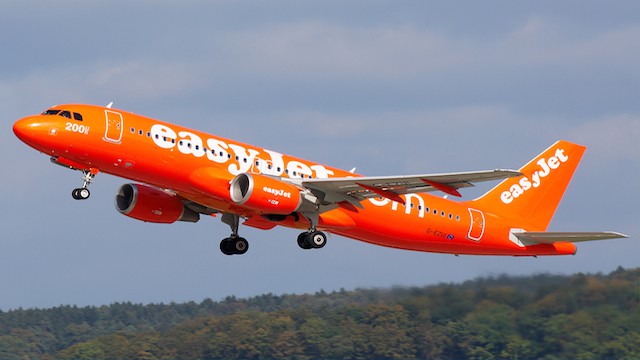Since the arrival of the pandemic in early 2020, the easyJet (LSE: EZJ) share price has been pummelled by the market. And that’s not surprising given the collapse of demand in the travel industry and the associated grounding of many of the airline’s planes for months on end.
At 609p, the stock is down by just over 50% since February 2020. And over the past year it has fallen by almost 4%. So the big questions for me are, does the business and stock still have the potential to recover to previous highs? And if so, should I buy it now?
Recent positive news
The most recent news from the company came last week with the first-quarter trading statement to 31 December 2021. The directors said the loss in the first quarter almost halved compared to the figure a year ago. And operating cash burn reduced “significantly”. However, the rise of the Omicron variant of the coronavirus affected short-term bookings. But bookings increased when the UK government decided to remove all travel testing requirements.
Overall, the first quarter financial performance was in line with the directors’ expectations. And in October and November, load factors improved with both months coming in above 80%. But the progress stalled in December when Omicron arrived. And the directors expect the variant to continue to affect sales during the second quarter.
But restriction-free travel in the UK from 11 February is a major positive. And easyJet expects the move to continue boosting sales in the months ahead. Meanwhile, other countries including France are also relaxing restrictions. And the directors say such moves are “a welcome step closer towards restriction-free travel across the whole of Europe”.
And the evolving situation suggests to me the potential for easyJet’s airline business to trade its way back to full capacity in the coming months. Meanwhile, the directors reckon the holiday division is strengthening its place as a “significant player” in the holidays market. And over 50% of the programme is sold with stronger margins achieved than those realised in 2019.
Transformation and a positive outlook
Chief executive Johan Lundgren said the company “transformed” many areas of the business during the pandemic. These measures include optimising its network and flexibility, and finding sustainable cost savings. He reckons such improvements are helping to “partially offset” inflationary pressure. And they are “step-changing” ancillary revenue coming into the firm now. Looking ahead, Lundgren expects a “strong summer”. And that will likely be driven by pent-up demand returning near to 2019 levels.
City analysts have pencilled in a bounce-back in earnings of around 2,000% for the trading year to September 2023. However, even if that’s achieved, earnings will still fall short of those in 2019 by about 35%. And that suggests the recovery story at easyJet could still have many months and years to run.
Meanwhile, the earnings multiple when set against those analysts’ expectations is around 13. That’s not an outrageous valuation, but it could prove to be expensive if the business misses its forecasts. And there’s always a risk of that happening with a company like easyJet because the business is notoriously cyclical and any number of operational challenges could arise to derail profits.
I think easyJet shares look set to recover further over time, however I’m not keen enough to add the stock to my portfolio because of the ongoing cyclical risks.








